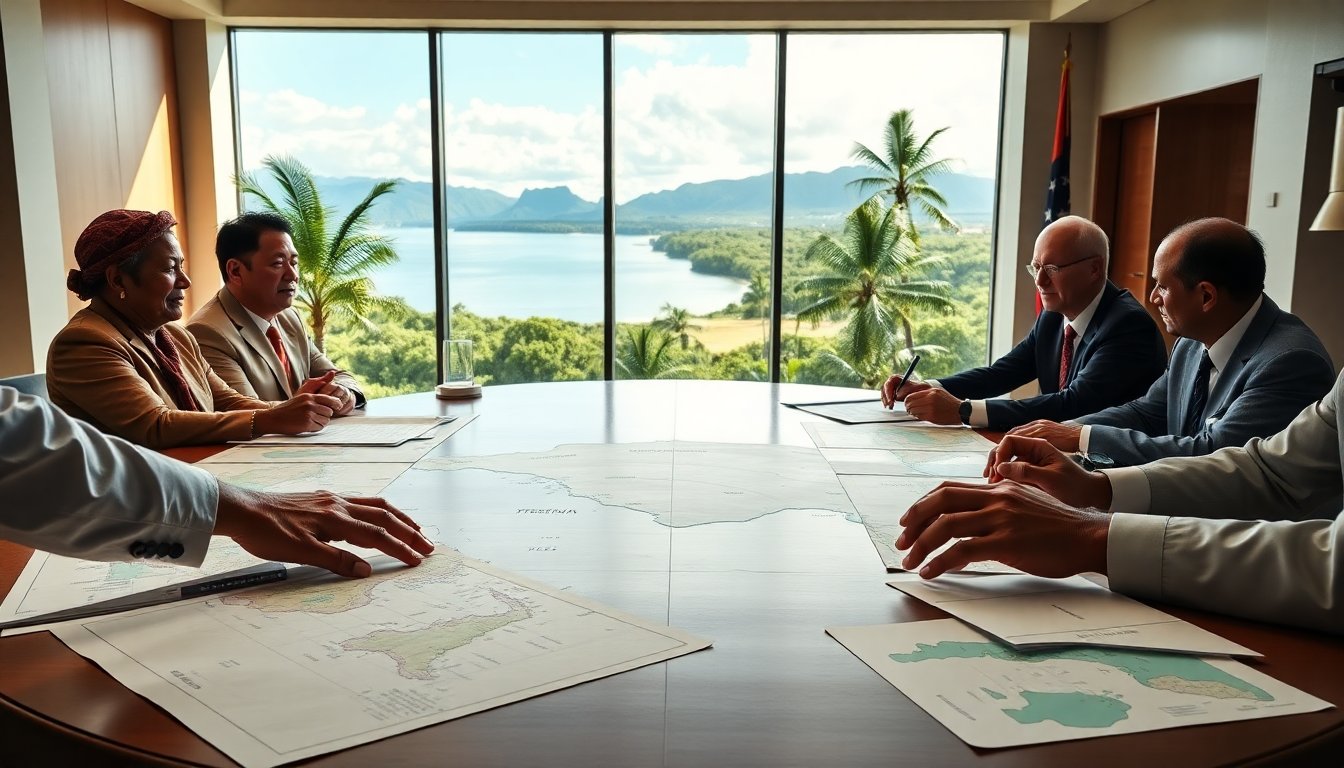Table of Contents
In a significant move for regional security, Papua New Guinea (PNG) has approved a crucial defence treaty with Australia. This agreement, known as the Pukpuk Treaty, represents a substantial enhancement of the longstanding partnership between the two nations.
Prime Minister James Marape of PNG expressed his support for the treaty, highlighting the deep trust and shared history that characterize the relationship with Australia. He stated that the agreement reflects aspirations for a united future.
Details of the Pukpuk Treaty
Initially scheduled for signing during PNG’s 50th independence anniversary, the treaty’s formalization was delayed due to insufficient cabinet participation. Following recent cabinet approval, leaders from both nations are now eager to proceed.
Australian Prime Minister Anthony Albanese shared his excitement for the treaty’s official signing on social media. The treaty aims to establish a formal alliance. While the complete text of the Pukpuk Treaty is not yet public, Prime Minister Marape’s announcement emphasized key components, including a mutual defence clause.
Military modernization and cooperation
The treaty includes a commitment for PNG to enhance its military capabilities and create a national reserve force of 3,000 volunteers. Additionally, it will allow for 10,000 Papua New Guineans to enlist in the Australian Defence Force.
Currently, PNG targets a military force of 7,000 personnel, focusing on establishing a stronger defence posture. This treaty is particularly significant, representing a deepening of military cooperation as both nations confront emerging security challenges.
Historical context and regional dynamics
With a population exceeding 11 million and a diverse range of over 10,000 ethnic groups, PNG is one of the world’s most varied nations. However, it also faces periodic violence linked to its ethnic diversity, making security cooperation essential.
Historically, Australia held a colonial role in PNG from 1902 until its independence in 1975. Since then, the two countries have maintained a close partnership. Defence expert Jennifer Parker indicated that the Pukpuk Treaty is set to formalize this enduring relationship, potentially marking Australia’s first treaty ally in seven decades.
Concerns and future implications
Currently, Australia is allied with only two nations under the 1951 ANZUS treaty—the United States and New Zealand—while PNG lacks formal military alliances. The Pukpuk Treaty thus signifies a substantial shift in the defence strategies of both countries.
While specific details of the treaty remain undisclosed, there is a strong belief that it will include obligations for mutual support and defence. Justin Bassi from the Australian Strategic Policy Institute noted that this agreement could lead to increased Australian investments in PNG’s defence sector, addressing emerging geopolitical concerns.
Prime Minister James Marape of PNG expressed his support for the treaty, highlighting the deep trust and shared history that characterize the relationship with Australia. He stated that the agreement reflects aspirations for a united future.0
Prime Minister James Marape of PNG expressed his support for the treaty, highlighting the deep trust and shared history that characterize the relationship with Australia. He stated that the agreement reflects aspirations for a united future.1
Prime Minister James Marape of PNG expressed his support for the treaty, highlighting the deep trust and shared history that characterize the relationship with Australia. He stated that the agreement reflects aspirations for a united future.2


